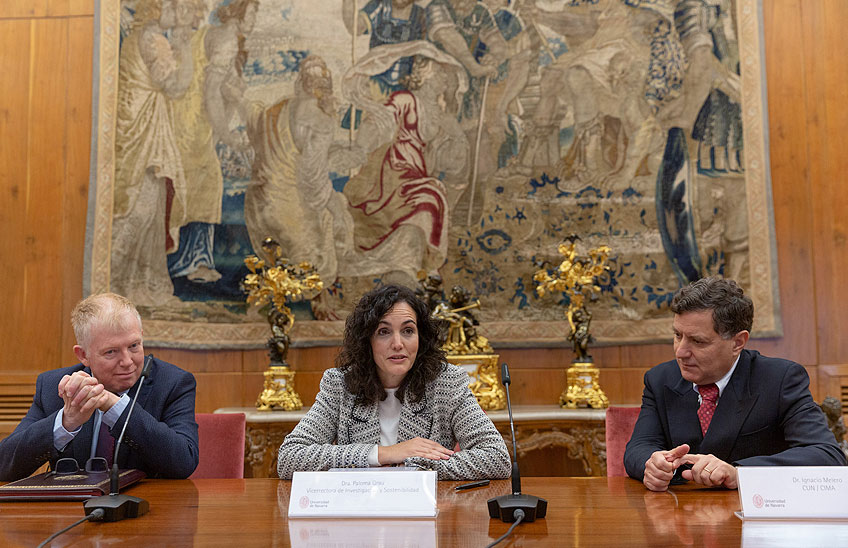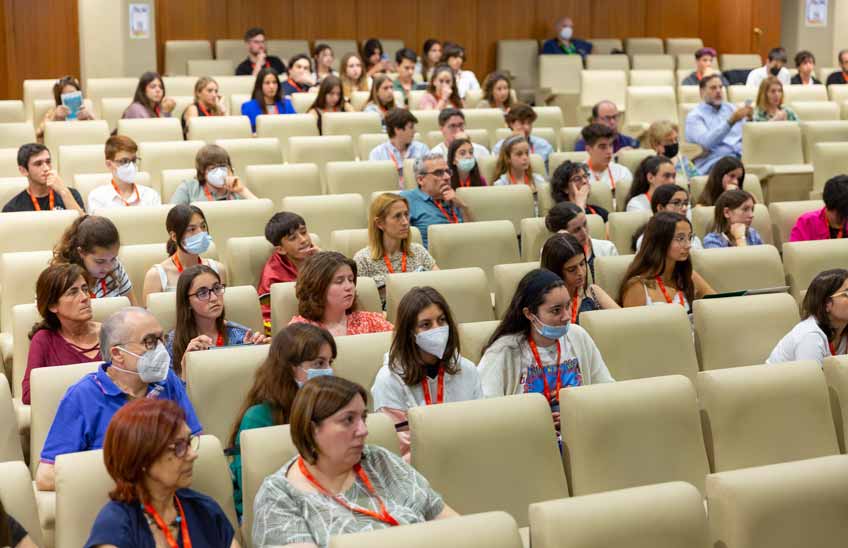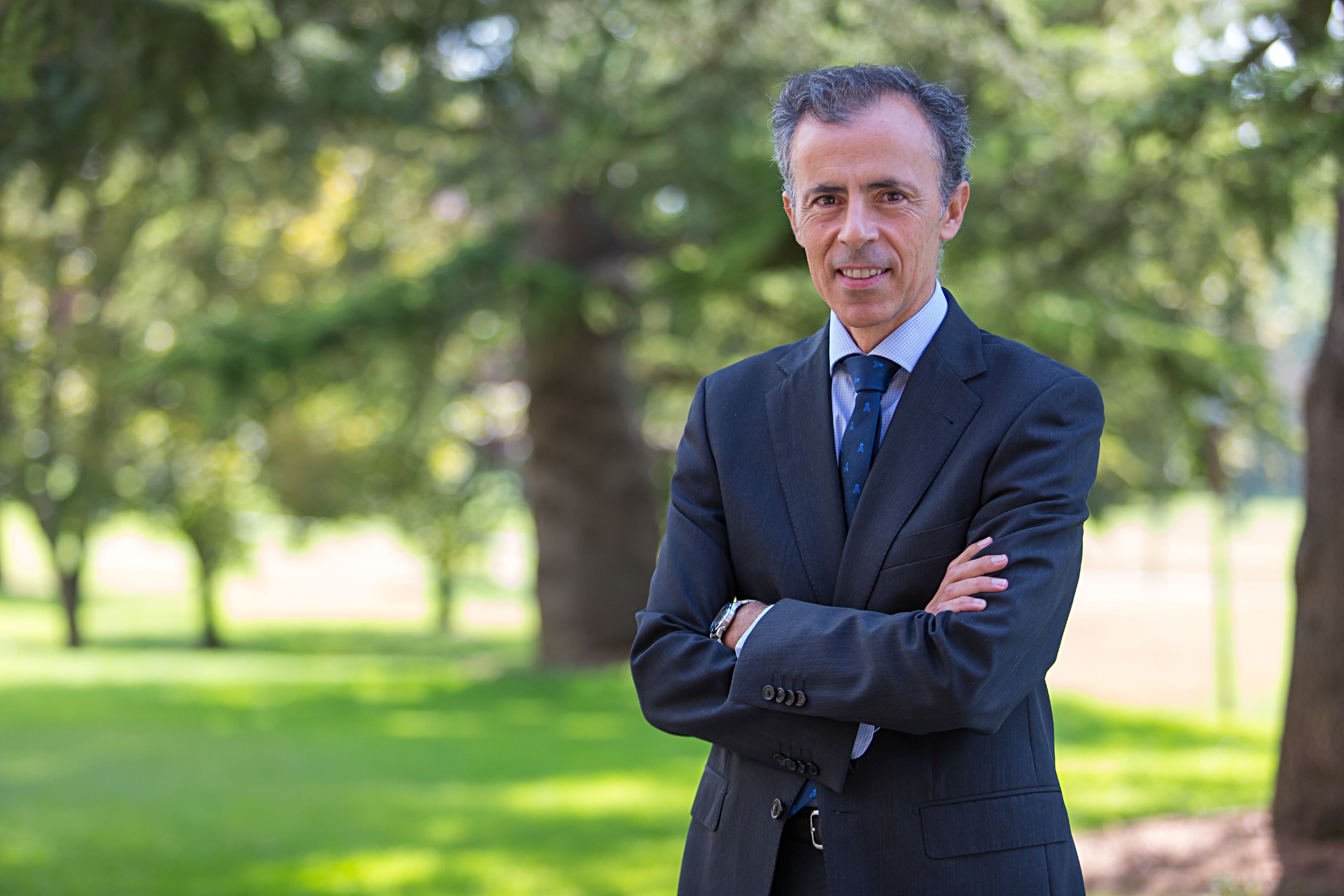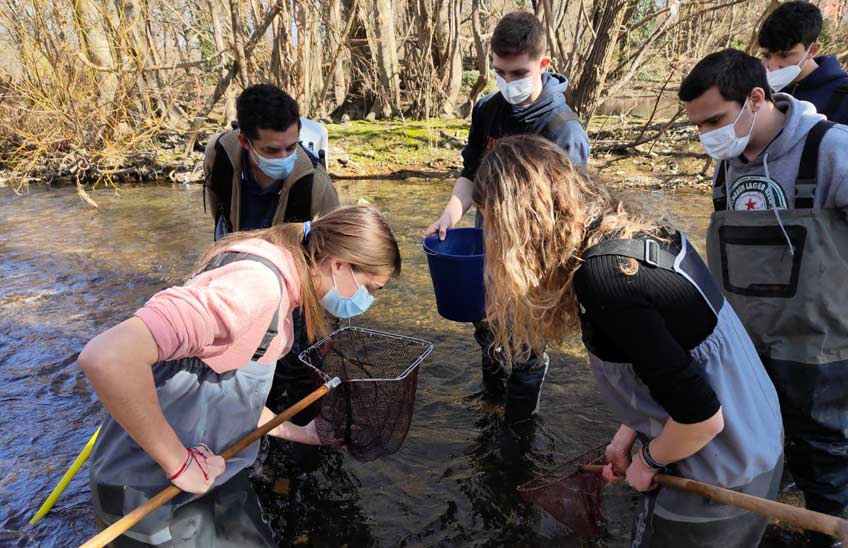"With Pre(ad)diction we are discovering the wealth we have next door."
The second edition of project Pre(ad)diction begins, with the participation of eleven researchers and nearly 200 students from six different sites Schools
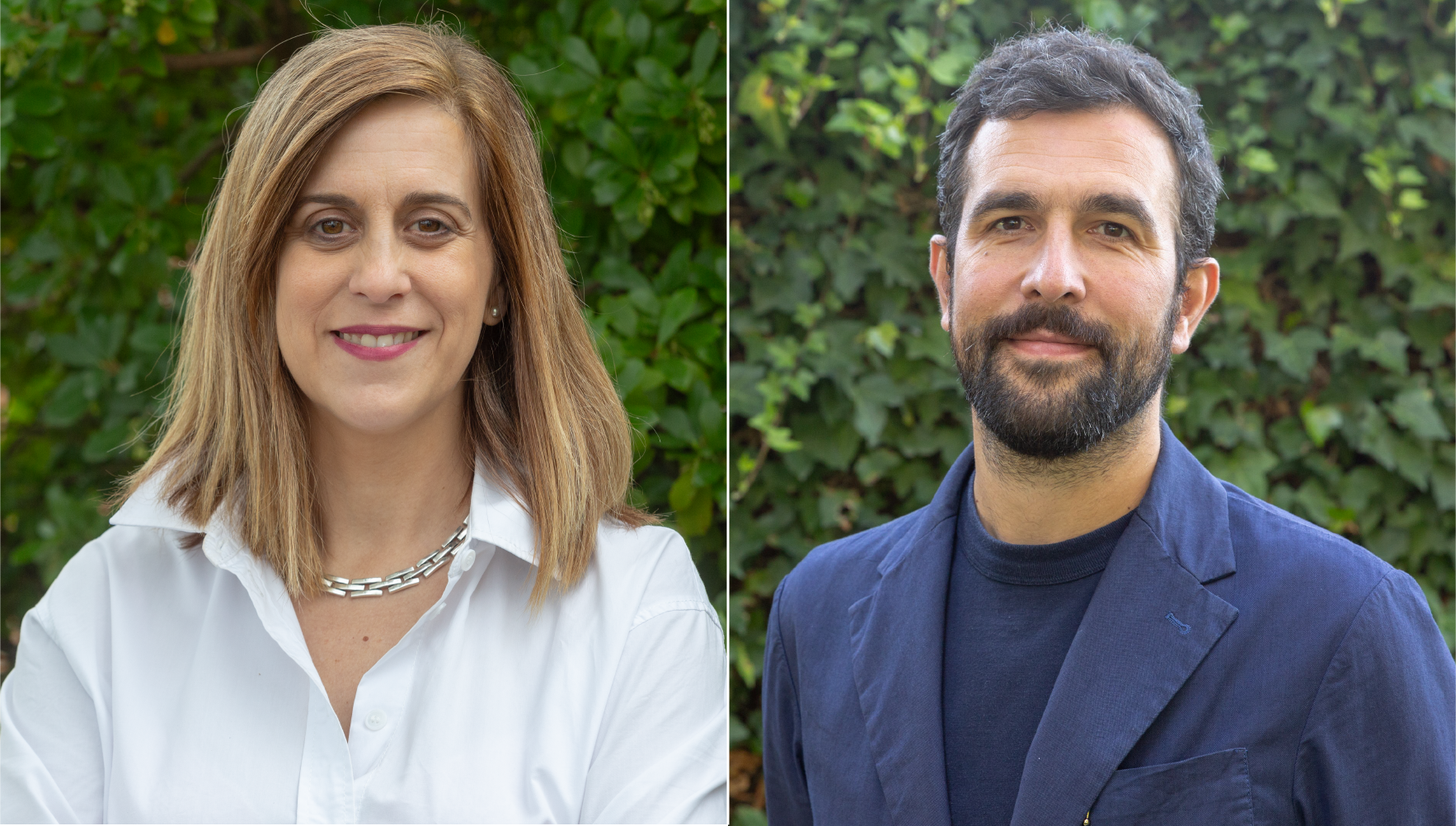
PhotoManuelCastells/
25 | 09 | 2023
According to the survey on alcohol and drugs in Spain EDADES 2022, 17.1% of young people aged between 15 and 24 had used cannabis in the last month and 27.2% had done so in the last year. Following the goal of the Health and Well-being axis of the Strategy 2025, the School of Nursing and at School of Architecture, in partnership with the Schools of Pharmacy and Nutrition, Medicine, Communication and Education and Psychology present the II edition of the project Pre(ad)diction. This is an initiative of the classroom Saludable de la School de Enfermería that seeks to connect students from these centers with goal to carry out an action plan that promotes health and fights addictions.
Professors Idoia Pardavila, from the School of Nursing, and Aitor Acilu, from the School of Architecture, tell the new objectives and the challenge that the multidisciplinarity supposes in a project that coordinates around 200 students from six Schools.
Q. Where did the idea of an interdisciplinary project come from?
Idoia: For any health promotion activity it is necessary to involve as many agents of society as possible. Thinking about the need to contribute from the University to society, from the beginning we saw the need to contribute.
Aitor: At Degree of design we work in the service branch, which links human beings in relation to the ecosystems in which they act and where they can contribute value by joining forces with other disciplines to achieve better results. The complexity of the challenges of the 21st century requires us to join forces.
After joining the Degrees Nursing and design, Pharmacy arrived, and later Medicine, Communication and Education and Psychology were integrated.
P. After evaluating the results of the first edition, have you set new objectives for the second edition?
Aitor: In the first edition of Pre(ad)diction we only addressed the School of Architecture and School Nursing. We experimented with many techniques and set goals for the results to be broader. We organized round tables where disorders were discussed, patients and physicians were presented and gave their testimony, and we experimented with working in the keys of an avatar.
Now, work is focused on identifying viable actions and results that will add up to positive results, in a learning journey in which they will work with colleagues from other disciplines who have joined and with whom they have never lived together before.
Idoia: There is a general goal that remains the same: to create a culture of care. For this edition, the rest of Schools joined in, each one has specific objectives and contributes from their field: in the Degree of design a award will be created and awarded to the students who stand out the most in the subjects that are linked to project. In the case of the students of the School of Communication, videos and dissemination plans will be made to be carried out in the campus during these months. From the last edition we have maintained the round tables to deepen the topic.
In addition, Nursing and Pharmacy students will participate in conference to raise awareness within the University, while Medical students will communicate the results of scientific articles.
Q: How is the coexistence between teachers and students? Adapting the project and the language they are used to in order to understand each other can be a challenge...
Aitor: That's very interesting, because we are all happy to talk at our international congresses with other people who are from our own discipline. But not all of us are able to meet with other professors who are developing research in our own campus. We are discovering the richness that we have next door that we have not been able to do so far.
Idoia: The students who participated in the last edition appreciated the opportunity to work with such different disciplines together and to learn. We cannot row alone and we cannot change perceptions of health alone. We have to collaborate with professors and students to become a national and international reference for a university free of addictions.
Aitor: As far as human issues are concerned, which are practically all those we have in our environment, we are all key players. In the case of addictions, there is a lot to say from other disciplines and it affects us all.
This innovation project is also led by professors Amaia Zuzua and María Villanueva, from School of Architecture. Also participating are Maira Bes and Silvia Carlos (School of Pharmacy and Nutrition), Elena Puerta (School of Medicine), Bienvenido León and Elena Gutiérrez (School of Communication) and Laura García and Luis Eudave (School of Education and Psychology). It also has a Service-Learning approach at promote the training of student body from real experience, favoring the creation of healthy environments. For the creation of prevention activities, the classroom Saludable de la School de Enfermería, Tantaka, the Clinic and Antox (association Navarra para la research, Prevención y Tratamiento de Adicciones) have also collaborated.

